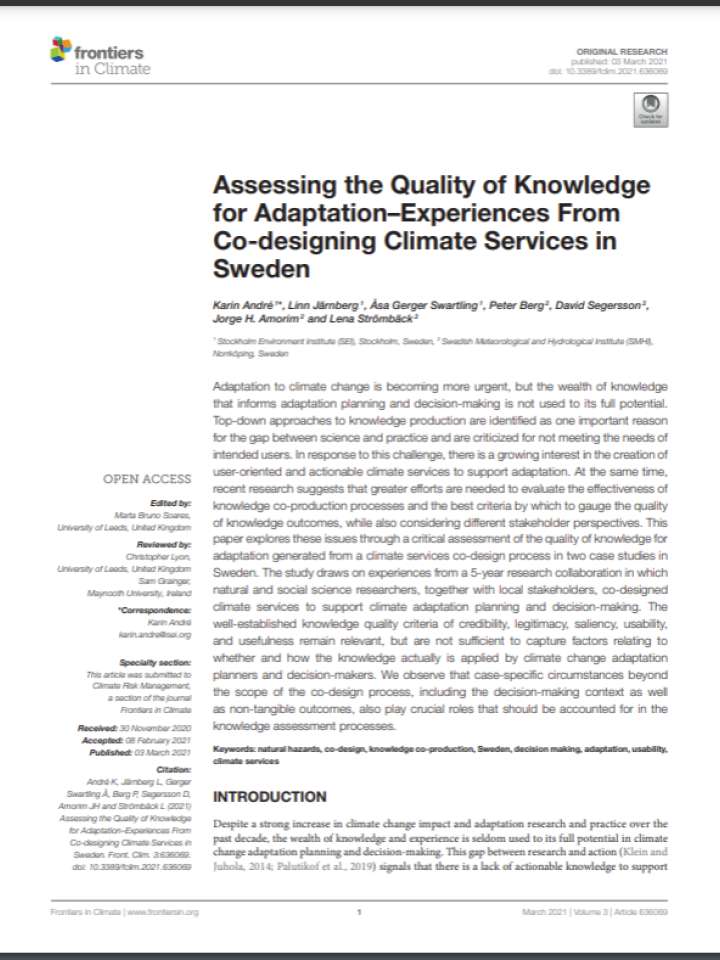This paper explores these issues through a critical assessment of the quality of knowledge for adaptation generated from a climate services co-design process in two case studies in Sweden. Despite a strong increase in climate change impact and adaptation research and practice over the past decade, the wealth of knowledge and experience is seldom used to its full potential in climate change adaptation planning and decision-making. This gap between research and action signals that there is a lack of actionable knowledge to support adaptation decision-making.
Climate services have emerged as a response to the urgent need for more context-specific, user-driven and decision-oriented climate information that can better support decision-making and action on climate change. In an ambition to close the science-policy-action gap that appears to hinder climate-resilient development, a growing number of social and behavioral science studies have identified barriers to an effective uptake of climate information in stakeholder assessments and in policy- and decision-making.
This paper concludes that the well-established knowledge quality criteria of credibility, legitimacy, saliency, usability, and usefulness remain relevant, but are not sufficient to capture factors relating to whether and how the knowledge actually is applied by climate change adaptation planners and decision-makers. The study shows that the proposed knowledge quality criteria, and in particular the saliency criterion, are relevant yet insufficient to fully capture whether and how adaptation knowledge is perceived as actionable. Further, the criteria overlook important long-term and intangible effects of the co-design process, such as strengthened relationships, networks learning and capacity.
